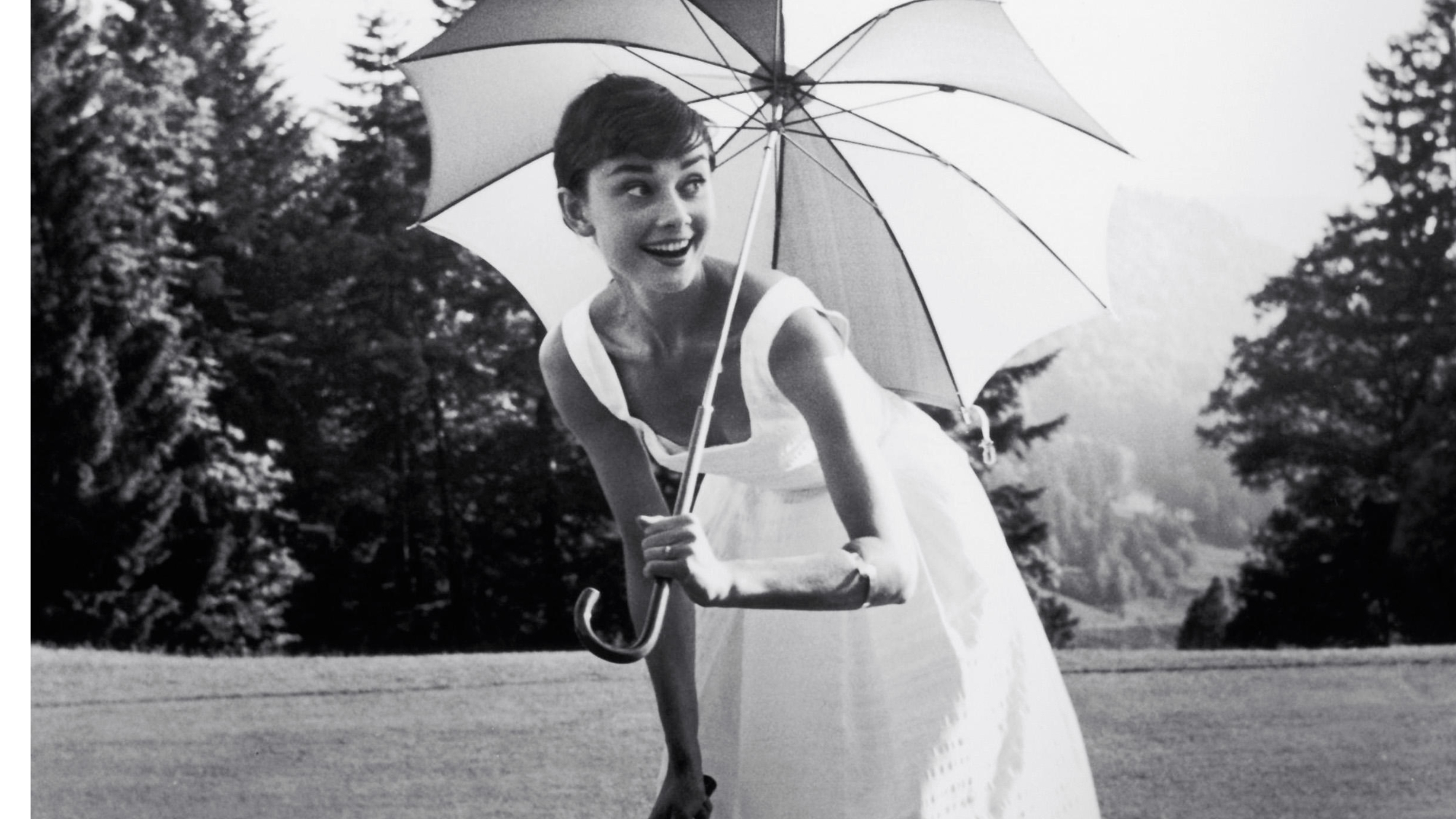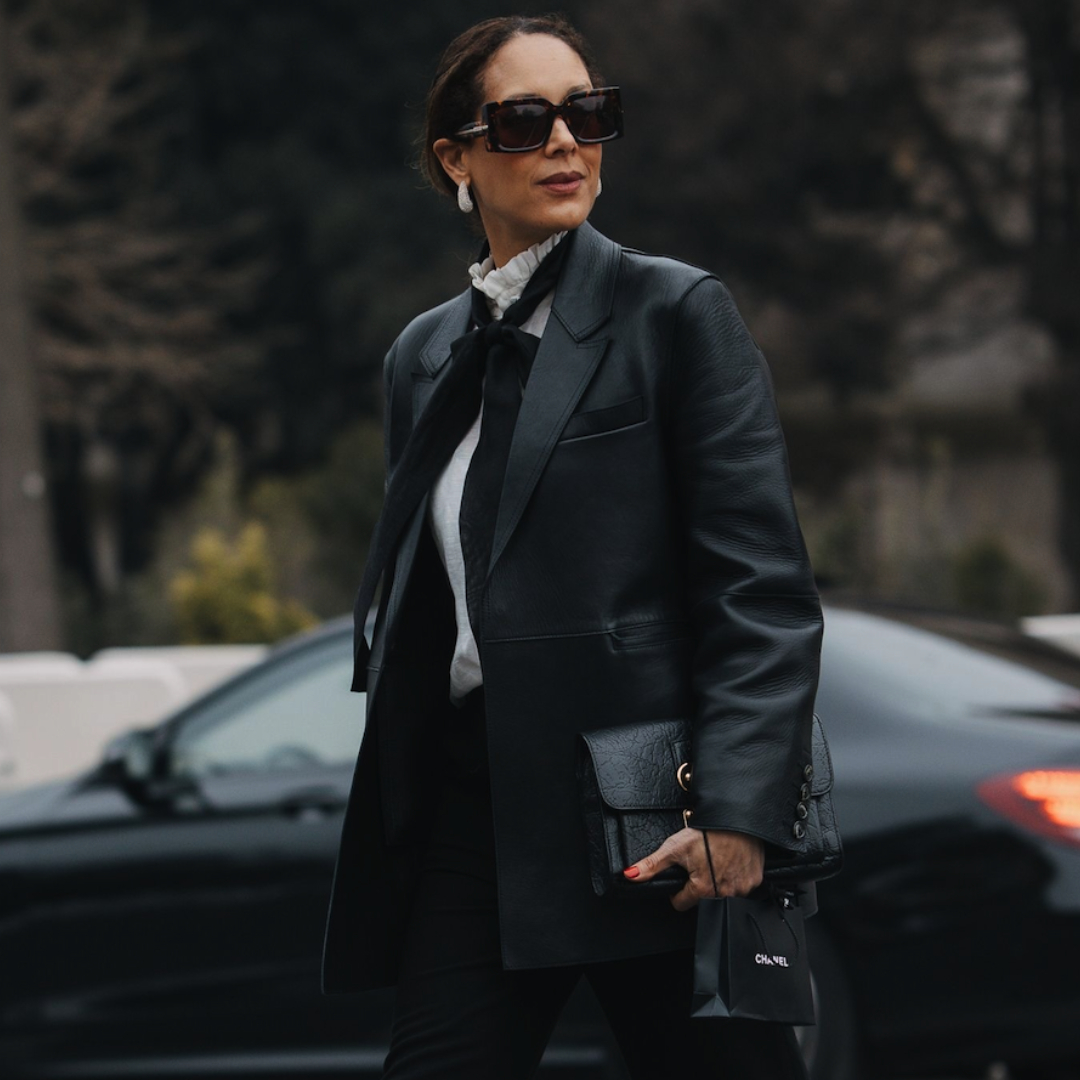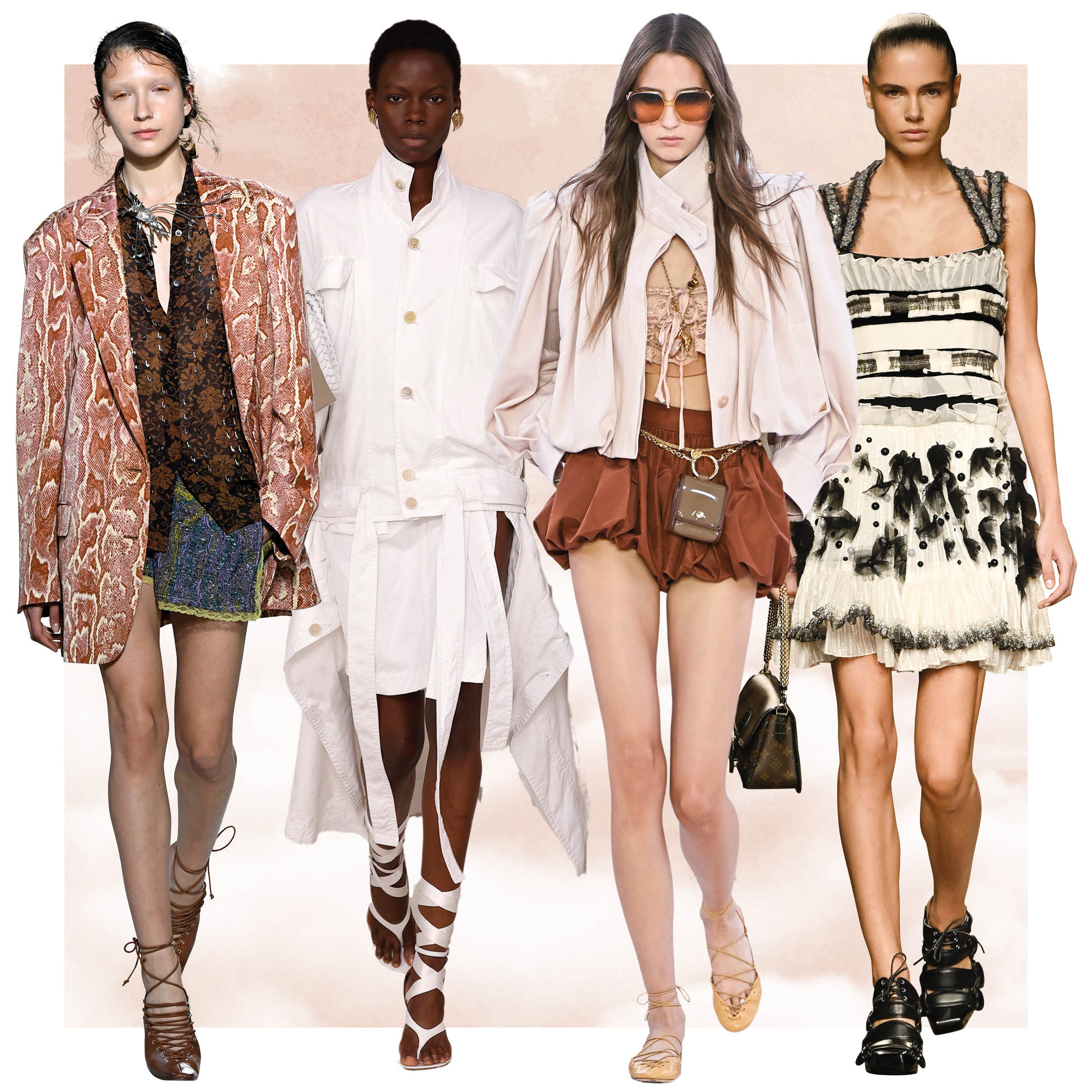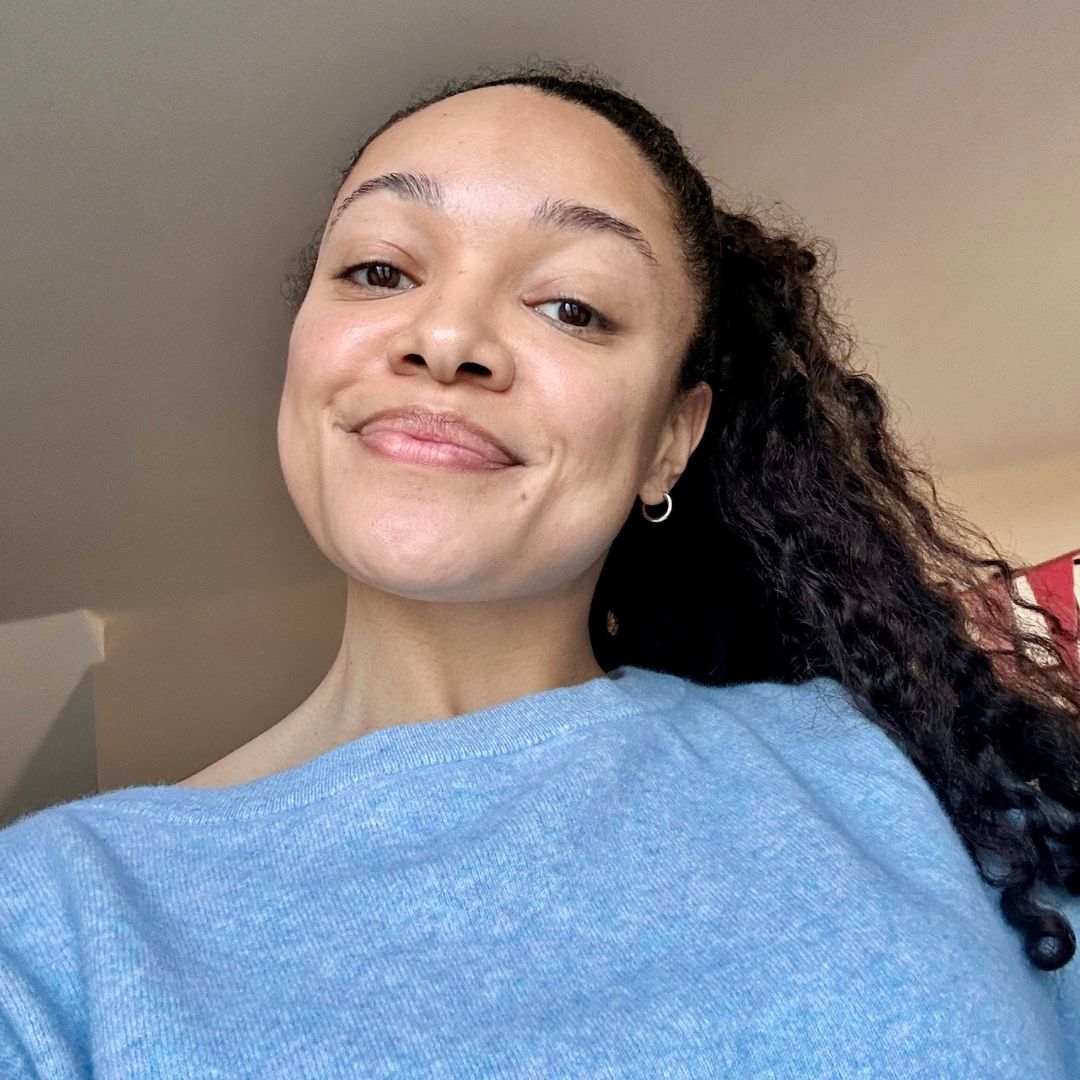Sean Hepburn Ferrer: “Audrey Hepburn was one of us"
Audrey Hepburn’s son Sean Hepburn Ferrer and granddaughter Emma Ferrer on the new Audrey Hepburn documentary, AUDREY

Audrey Hepburn’s son Sean Hepburn Ferrer and granddaughter Emma Ferrer on the new Audrey Hepburn documentary, AUDREY
The world will surely never tire of Audrey Hepburn - at least we can't imagine so. Even some 28 years after the icon’s passing, audiences are still clamouring for everything 'Audrey', gobbling up films, books, documentaries and that eternally chic sense of style. So it figures then, that the latest project about the actress and humanitarian - documentary AUDREY - has been just as eagerly received. Directed by Helena Coan, it centres around Audrey’s life and career - as well as digging a little deeper into her humanitarian work - and features beautifully-shot ballet sequences performed by dancers Francesca Hayward and Alessandra Ferri, who both play the actress. A fascinating insight into one of the world's most-loved stars, it blends never-before-seen archive footage with insightful interviews from those who knew her best, including Audrey’s son Sean Hepburn Ferrer and granddaughter Emma Ferrer. Marie Claire’s Entertainment Editor Sophie Goddard spoke to them ahead of the documentary’s release.
The documentary felt incredibly emotional at points. How did you both feel watching it back?
[S] The first time I saw the first cut - which was very different - I realised the trust and faith I had invested in Nick [Taussig, producer] and Salon Pictures had paid off. And of course Helena [Coan] who did a stupendous job. In this case, making this kind of documentary is not so much producing something new. You need to have a vision, but it’s about digging and digging and digging and digging. Then about editing and polishing, editing and polishing. It’s kind of a curating job. It took two years to do this. To find one of the most photographed women of the last century - and therefore almost everything is online – and find little titbits of film that had never been seen before, was quite a job. I have to in part thank my friend Maria Cooper, who is Gary Cooper’s daughter, who found that little film of the two of them at the ranch. It’s like when you make a dish and put just the right amount of herbs or spice, for that flavour. It just changes everything.
How did you feel about it, Emma?
[E]: it’s been amazing to watch Helena’s vision come to fruition because we’re the same age and she’s a fellow artist. I think when we all sat down together and filmed my father’s interview in Italy, we had the chance to understand what her vision was. And what she was imagining as a final product. She could have taken a very cookie-cutter route but when we first heard her say she really wanted this film to be about love, it was such an abstract concept. We were all kind of like ‘Huh? OK, we’ll see how that plays out…’. To see how she stayed true to her initial concept and how it really developed into something so aesthetically and conceptually pleasing has been amazing.
There have been documentaries made about Audrey’s life before. Why did you want to lend your support to this one?
[S]: We tend to perceive Hollywood as an industry that is trying to mitigate risk more and more. We see more remakes, more series. They always go ‘if water runs downhill so does Hollywood’. So for a company like Salon [Pictures] to take it on, there’s not a huge risk taking on Audrey Hepburn. Unless you consider the fact that there are Audrey Hepburn books, documentaries or biographies coming out every year! So there is a huge amount, but never have they drilled down, polished and honed as this film has done. That is why we all wanted to get involved and give them the support.
[E]: I’ll just add that I’m really grateful for what I see as a de-mythification going on from this film. And a deconstruction of this woman behind the camera. I think we could have very easily chugged along for eternity just maintaining this crystalline image of her, never really understanding [but this is] really bringing it onto a personal level of who she actually was.
Do you think it shows a side to Audrey people didn’t know about?
[S]: An interesting question that has been recurring is that she appears to have been this delicate woman in all these films, but really she was a woman of substance wasn’t she? And I say yes, you don’t get to be Audrey Hepburn if you are a sort of ‘babe in the woods’. It takes a lot of character, a lot of vision, good boundaries and hard work. And the ability to stand up for what you believe to get there. So it’s nice that we see the real person and the intimacy of who that person really is. It helps to explain why she is still so loved.
Marie Claire Newsletter
Celebrity news, beauty, fashion advice, and fascinating features, delivered straight to your inbox!
It’s incredible just how much she’s loved by all generations, not just the ones who grew up on her films, isn’t it?
[S]: In part I think it’s because the young generation are so much more instinctive than adults. Children are born with this wonderful instinct and capacity to see the truth. In the world of Kardashians, Audrey Hepburn still shines, so it’s an interesting series of things happening that we did not plan but it’s sort of coming along.
[E]: To hear her - someone of my age - discuss things like trauma from a perspective that was really quite modern for the time that she was in, was really enlightening. As I think it shows, not only a person with so much introspective, but a person with a tremendous capacity to form analysis and really look deeply at things. And to be a great actress, you have to have that ability to self-comprehend that a lot of people are entirely unconscious about what they are feeling.
It's interesting hearing anecdotes about strong and determined she was in the documentary - insisting, for example, that Moon River stayed in Breakfast At Tiffany’s.
[S] The other side of the coin of that wonderful story is the whole My Fair Lady drama. When she was offered the part, she said ‘I can’t do this, Julie [Andrews] needs to do it - she deserves it and has a much better voice than me’. They kept pressing and pressing until ultimately, she called the studio heads for lunch. And they all sat around - thrilled she was finally going to relent. And she actually spent the lunch saying, ‘I’ve thought about it really hard and I’m not going to do it because Julie needs to - she has years of rehearsals and the know-how’. The studio got up - very much like she got up in the Moon River commentary - and said, ‘Well if you’re not going to do it, Julie’s not going to do it and we just won’t make a picture’. So I think when that finally came in and she spoke to Julie about it - and Julie had just been offered The Sound of Music - the rest is history. So she was strong-headed in that way and fearlessly loyal to her friends.
A huge part of Audrey’s success was obviously down to her tremendous talent, but she drew from very difficult life experiences as well. Emma, you spoke about how sad she was at points during her life in the documentary. Do you think it was that openness and willingness to be vulnerable that made people connect with her so much?
[E]: I definitely do. And I believe she was extremely in touch with herself and the part that felt immense pain. She could have easily shut the door from what she went through as a child and lived a life of glamour and not tried to deal with it. But the fact is, she didn’t try to wallow - she tried to turn it into something that was extremely generous in the later part of her life. If she hadn’t had that experience of immense suffering, I don’t think she would have come around in that way. I think it shows a tremendous amount of character and strength.
[S]: People have asked that question but they have never had a straight answer until of late. I think the ultimate answer as to why we perceive her so finely as we do today is that we consider her one of us. Elizabeth Taylor is one of them, Audrey Hepburn is one of us. She’s the girl from across the landing that puts the little black dress on and goes out into the world. She’s on our side and we are going to support her. She’s not perfect, she doesn’t have all the typical attributes of a movie star - she’s ‘too thin’ and was deemed to have all these defects - but she was the perfect package of imperfection. And so she is real, a real human being. We take possession of her in a way.
Audrey left behind an incredible catalogue of films, outfits, photographs, clothes, her charity work. Beside the charity work which I want to ask you about shortly, is there a particular piece of work you hold especially dear?
[S]: No, because I don’t think she did either. You know, we’re not a film buff family. I didn’t grow up with it, in not a place or state of mind. We didn’t have a screening room, we were not into the culture of Hollywood and she didn’t talk about herself. She let us discover who she was and to what extent she was known which we ultimately didn’t even realise until she passed away and we saw 25000 people lining the streets of a little hamlet in Switzerland. I’ve done the same with my children. I’ve never cultivated that and I’ve let them find out with time, in order for them to develop their own thoughts about all of this.
How about you Emma?
[E]: It’s so multifaceted because in a way it’s very impersonal for me because I never even knew her. So I can only try and formulate an opinion from someone else and having conversations with people who knew her. But at the same time, it is extremely personal because it is - and there is no way around that. I think the thing I cherish most about being her granddaughter is the way it makes me feel connected to my dad. The most beautiful thing for me is not to watch how the world perceives her, but how my dad perceives her. And the way that has changed over time. You know just listening to him doing countless interviews when I was growing up and hearing the way that the answers become more refined, it shows me there is a constant reflection going on, on his part as well. And that’s the thing that I hope to have as well when I grow older.
[S]: And what a dichotomy because we’re not a Hollywood cultivating type of family. So in a way it’s bizarre that we’re put in a position to keep promoting this myth, because she’s not here. She hasn’t been here for almost as long as she was famous. And yet we do it - I think - in part, because it promotes the nice side of humanity, the hopeful side of humanity. And people react to that and it brings comfort to people - what she did and what she thought. It’s not just a world of dog-eat-dog and Trumps and all of this...there are people and there is hope and you can still get there and have a reasonable measure of success and appreciation.
Audrey’s impact on UNICEF was enormous but we hear her say ‘hard work is never hard work when it’s done with love’. Was that difficult, do you think? Do you feel that way too?
[S]: My work is very different because I had small children and I was at a different time in my life so I had to withhold flying into dangerous places because I had those responsibilities. Emma on the other hand, has gone out and travelled for UNHCR. As she [Audrey] always used to say, ‘First you take care of your inner circle then you can expand the rings as life goes on’. It was a full-time job. Between preparing for the trip, reading and writing everything - there was not computers in those days - then travelling to the location. Then getting there and visiting the field and meeting the local authorities and humanitarian organisations. Then going back to America and Europe and doing TV shows and going to the White House and Congress. By the time you’ve done a trip, it’s two to three months. So if you do four or five trips a year….We all got two weeks off at Christmas to be together and we’d look at her and say, ‘Mum, you look tired and stressed out, when are you going to take some time to smell the roses?’. And she said, ‘I just need to do this one more trip’.
Emma, you’ve followed in your grandmother’s footsteps in the charity work you do. Do you ever wrestle with the pressure of being Audrey’s granddaughter and continuing that incredible legacy?
[E]: No, it’s actually been quite liberating to focus on that as a means of gratification, rather than other things. Because I definitely have felt pressure in my life to be as successful or as pretty or as... fill in the blanks. But when it comes to being able to carry on this line of work, I imagine that it’s something I would want to do regardless. Because it feels like something that is my own and a desire that I never even questioned. I don’t know how much of that was nature or nurture but it’s a way I can connect with her without any form of self-judgement or questioning how it could be perceived. And I think it’s a way I can feel so intimate with her without ever having known her, because I can begin to imagine how she felt in these kinds of situations. Whereas I don’t think I could ever truly comprehend what it was like to be Audrey Hepburn for all the other reasons. But this one is kind of like a pure form of connection.
Audrey is on DVD and digital download now. Little Audrey's Daydream by Sean Hepburn Ferrer and Karin Hepburn Ferrer is out now (Princeton Architectural Press, £12.99)
Sophie Goddard is the Entertainment Editor of Marie Claire UK, as well as working across other titles in a freelance capacity. She has over 10 years journalism experience working on both digital and print platforms and prior to Marie Claire, worked at Glamour and Cosmopolitan magazine. Sophie writes about a number of topics, specialising in celebrity interviews and features. At Marie Claire, she is responsible for booking and interviewing cover stars and other celebrity interviews and is always open to pitches from publicists (she is always open to discussing sausage dogs, too).
-
 Andrea's It List: Finishing touches that elevate any outfit
Andrea's It List: Finishing touches that elevate any outfitDon't underestimate the power of accessories that make your outfit pop
By Andrea Thompson
-
 The fashion set is obsessed with lace-up shoes right now—these are the best pairs to shop
The fashion set is obsessed with lace-up shoes right now—these are the best pairs to shopNew summer footwear obsession, unlocked
By Sofia Piza
-
 I tried Pilates roll-downs every day for a week - and was amazed at how quickly it eased years of stiffness
I tried Pilates roll-downs every day for a week - and was amazed at how quickly it eased years of stiffnessConsider my spine more mobile than before.
By Rebecca Shepherd